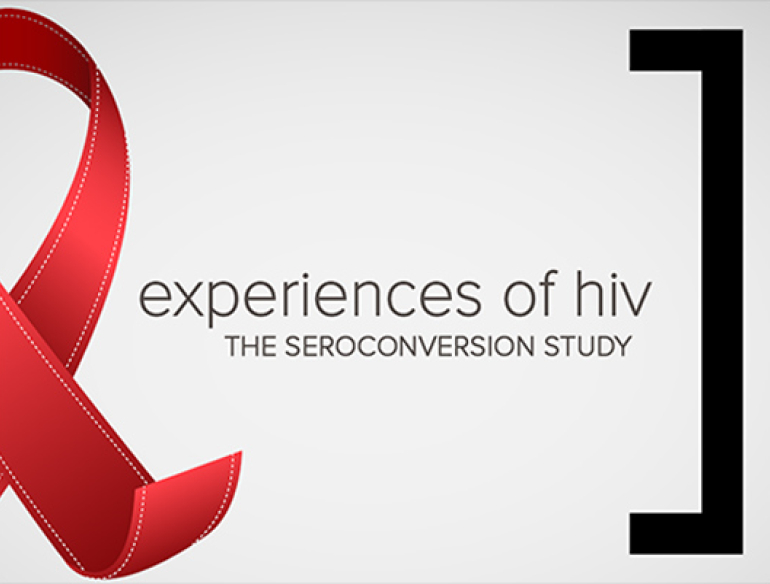Earlier diagnosis of HIV and peer-support for those newly diagnosed reduces the likelihood of onward transmission of the infection, according to a new report released today by the Kirby Institute at UNSW and published in the Journal of Acquired Immune Deficiency Syndromes (JAIDS).
Data from the latest and final Seroconversion Study Report indicates that gay and bisexual men change their behaviour substantially following an HIV diagnosis, generally in ways that greatly reduce the possibility of onward transmission. Behaviour changes include partner reduction, partner selection (serosorting), disclosure of HIV status, and reduced likelihood of condomless sex. Contact with peers seems to support these kinds of changes.
“We have long known that treating people for HIV infection significantly reduces the risk of passing on the virus to their sexual partners, and we learned from the START trial results released last year that early treatment for HIV infection has significant health benefits for the individual,” said Associate Professor Garrett Prestage from the Kirby Institute, lead author of the JAIDS paper. “This research shows us that an individual’s risk of transmitting HIV to a partner during the early days of HIV infection, when infectiousness is high, may have less to do with whether they start treatment immediately or early, than whether they were diagnosed early and received peer-support following diagnosis. To the extent that decisions about early or immediate treatment are influenced by concerns about onward transmission, these data indicate that this risk may be considerably lower than had been the case prior to their diagnosis.”
When it came to decisions about starting treatment, the study also found that the support and information provided by peers made that decision much easier.
“This study provides further evidence that peer support following diagnosis is absolutely essential to the long term health and well-being of those newly diagnosed with HIV, and could result in reductions of onwards HIV transmission,” said Brent Allan, Chief Executive Officer of Living Positive Victoria and co-author the JAIDS paper. “It’s clear we need to scale up community efforts to improve frequency of testing to diagnose infections early and get people onto treatment as soon as possible. Peer support programs do just that.”
The Seroconversion Study also found that few HIV infections among gay men are attributable to sex with their primary regular male partner (or ‘boyfriend’). HIV is far more likely to be transmitted via sex with a casual partner and is most likely to occur in the context of sex with a new partner, with whom they have had no prior sexual contact.
This is in contrast to research findings from the US and Europe, where 60-80% of infections are estimated to occur within a relationship.
About the Seroconversion Study
Since 1992, the various iterations of the Seroconversion Study have mapped the changes in gay men’s (and, more recently, heterosexual men and women’s) understanding of the factors that influence risk behaviour, testing, and coming to terms with an HIV diagnosis. The HIV Seroconversion Study collected both quantitative and qualitative data, through an online survey questionnaire and in-depth interviews.
Results from the final Seroconversion Study Report will be presented today at the Australian Federation of AIDS Organisations (AFAO) National Gay Men’s HIV Health Promotion Conference in Manly.
“This final report is an essential tool for policy-makers and health communicators. It will inform the development of targeted health promotion responses for those living with, or most at risk of HIV,” said Dr Bridget Haire, President of AFAO. “The Seroconversion Study has been essential to our understanding of people’s behaviour in relation to HIV infection on an ongoing basis and has provided us with some of the most critical information about how to prevent HIV in the future. We now look forward to a new version of the study that will be more closely integrated into service delivery and peer-support for those who have been recently diagnosed with HIV.”
The Seroconversion Study has been led by the Kirby Institute in collaboration with the Australian Research Centre in Sex Health and Society at La Trobe University, the AIDS Councils and people living with HIV (PLHIV) organisations in each state and territory and the Centre for Social Research in Health at UNSW Australia.This study has been funded by the Health Departments of New South Wales, Victoria, Queensland, Western Australia, South Australia, Tasmania, Australian Capital Territory and Northern Territory.
Contact
Laurie Legere
Phone
+61 (02) 9385 9987
